As a mentor, Beth Renner knows that women often need to find their voice—and when they do, it can be a powerful booster charge to their career.
As she recounts, she was recently working with a long-term mentee who had finally applied for a position. When Renner had asked why she had hesitated, the mentee said she believed she didn’t have the entire skill set, but as they walked through the skill set and experience, it became clear that the position was a perfect fit. “Sometimes the biggest challenge is the messages we tell ourselves.”
Finding the Ideal Niche to Blend Personal and Professional Interests
Renner’s clear confident voice has brought her a 28-year career in the financial services industry, during which she has essentially touched every part of a financial services company. She started on the retail bank side as a personal banker; then was a credit officer with a small business lender; went into the fiduciary side as a private banker and trust manager, where she subsequently oversaw the fiduciary investment and brokerage side; and for the past eight years has worked in philanthropic services, where she currently has $26 billion in charitable assets under management for clients.
“The lifeblood of our business is the advice we provide our clients around their donations and assisting nonprofits in making sure they are sustainable,” Renner explains. Having always been personally involved in charitable work with both her time and treasure, the chance to marry that in her professional life is the achievement of which she’s most proud.
“For me it’s not about achieving a certification or designation, but about what I do every day, and I’ve really found a home for myself in this area that allows me to align my personal and professional values,” she says.
A Sea Change in the Philanthropic World
As the country prepares for an impending generational “wealth transfer,” Renner finds several themes consistently emerging. First, as a matriarch or patriarch who is naturally at the maturing point is engaging in legacy planning, they are asking how they can ensure that their values will be represented. The goal is to engage multiple generations from the family in their philanthropic pursuits.
Others are wrestling with the question of how much to leave their kids and wondering how to engage philanthropy as a tool to stave off entitlement.
“Donors are viewing themselves as an investor in these causes more than ever before, and we are adjusting the advice we provide them to create a more disciplined process.” To that end, she has helped develop a series of philanthropic planning modules that they are currently honing through focus groups, and she looks forward to rolling them out. “It’s a pleasure to be able to work more deliberately on these issues and adjust our business to how our clients are telling us they need counsel.”
Renner has become attuned to the absolute value of listening with intention and mindfulness which is helping inform this new initiative. When her father passed away shortly after she turned 50, she hit a point of reflection. “It causes you to look at things differently, and one of the things that has stuck with me is the art of listening and how it helps you understand others and yourself. Being mindful means that if I’m in a situation where I’m listening to clients or my team and find myself having an internal reaction, it spurs me to dig deeper to figure out where it’s coming from.”
Finding a Mentor Helps Your Career Path
One thing Renner learned from her mentor early on in her career was to focus on developing transferrable skills. For example, you don’t just want to be an expert in credit analysis, but you need to know how to solve complex problems. “In any position, consider what skills you can learn that you don’t yet have or want to cultivate,” she says.
And today she encourages women to be intentional about mentoring other women. “Don’t wait to be asked; when you see someone with potential, proactively reach out to them,” she suggests. That’s because we all are a collection of our past experiences and to give someone that gift of your accumulated knowledge will allow them to make progress faster.
She takes that outlook to her work on Wells Fargo’s Women’s Team Member Network, a diversity and inclusion employee resource group she finds valuable for its focus on broadening everyone’s lens around diversity and how to foster and develop it.
Her outside philanthropic pursuits are a perfect match for her professional life: She is absolutely passionate about the American Red Cross, and is the national chair of the women’s giving group called the Tiffany Circle. The group has flourished in five different countries, and in her role she helps develop the strategy around mobilizing this women’s segment. “A lot of the work I do at Wells Fargo helps the Red Cross with their fundraising and stewardship because I can share national trends and the emerging role that women are playing in philanthropy,” Renner says.

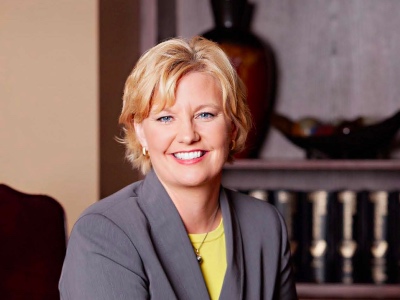
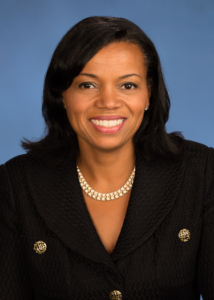 “Be Bold and Take Risks to Be an Agent of Change”
“Be Bold and Take Risks to Be an Agent of Change”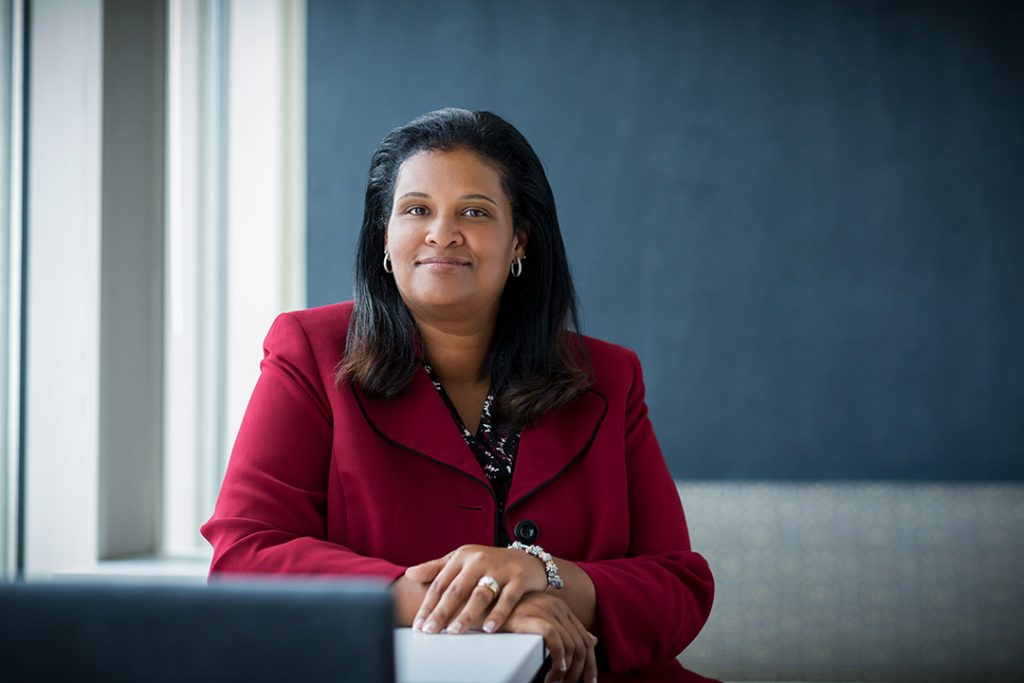
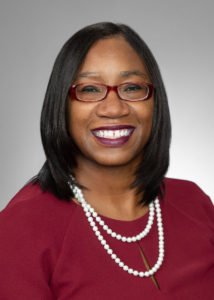 “Don’t stress out” over your career, Kenya Scott Woodruff tells women who are entering the workforce.
“Don’t stress out” over your career, Kenya Scott Woodruff tells women who are entering the workforce.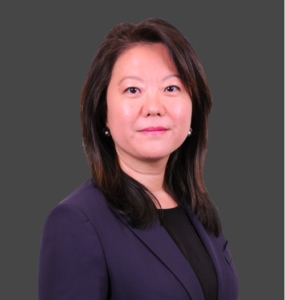 “When it comes to diversity and inclusion, we have to continually find many ways to talk about it openly, even if this involves having difficult conversations,because although it may feel challenging, the end result will be worth it for everyone“ states Sandra Bang, Chief Diversity and Talent Strategy Officer at Shearman & Sterling LLP.
“When it comes to diversity and inclusion, we have to continually find many ways to talk about it openly, even if this involves having difficult conversations,because although it may feel challenging, the end result will be worth it for everyone“ states Sandra Bang, Chief Diversity and Talent Strategy Officer at Shearman & Sterling LLP.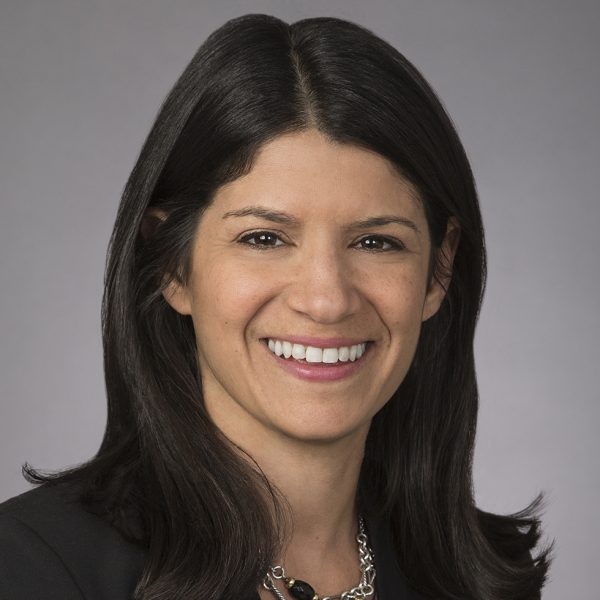
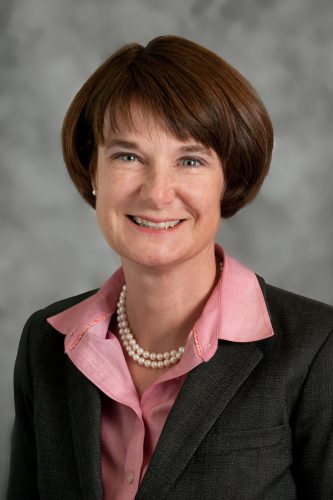 Earn opportunities by, working hard, taking a deep interest in your work and realizing results, which will give you the confidence to ask for even more, says Tracie McMillion.
Earn opportunities by, working hard, taking a deep interest in your work and realizing results, which will give you the confidence to ask for even more, says Tracie McMillion.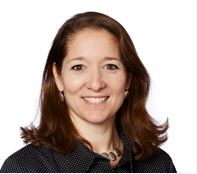 When you consider your career, it’s vital to get clear on what brings you joy, says Sarah Wolman.
When you consider your career, it’s vital to get clear on what brings you joy, says Sarah Wolman.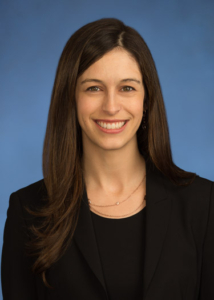 To progress in your career, you have to get out of your comfort zone, says Goldman Sachs’ Miriam Wheeler, who was recently named a partner at the firm – a role that will come into effect in the New Year.
To progress in your career, you have to get out of your comfort zone, says Goldman Sachs’ Miriam Wheeler, who was recently named a partner at the firm – a role that will come into effect in the New Year.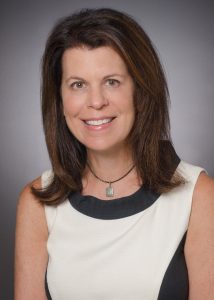 Advocate for yourself and know your value; don’t sell yourself short, Wendy Cohen advises associates.
Advocate for yourself and know your value; don’t sell yourself short, Wendy Cohen advises associates.